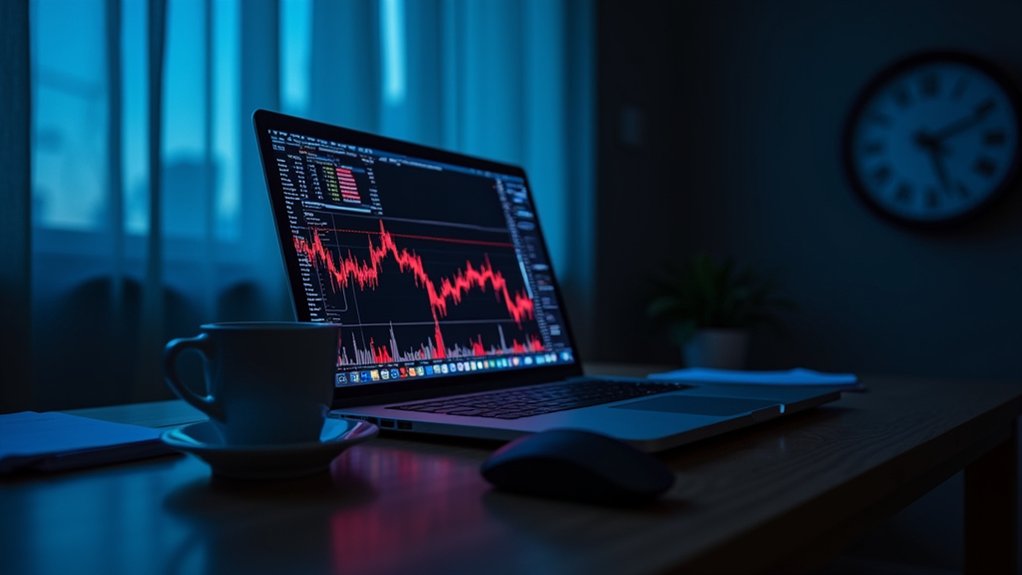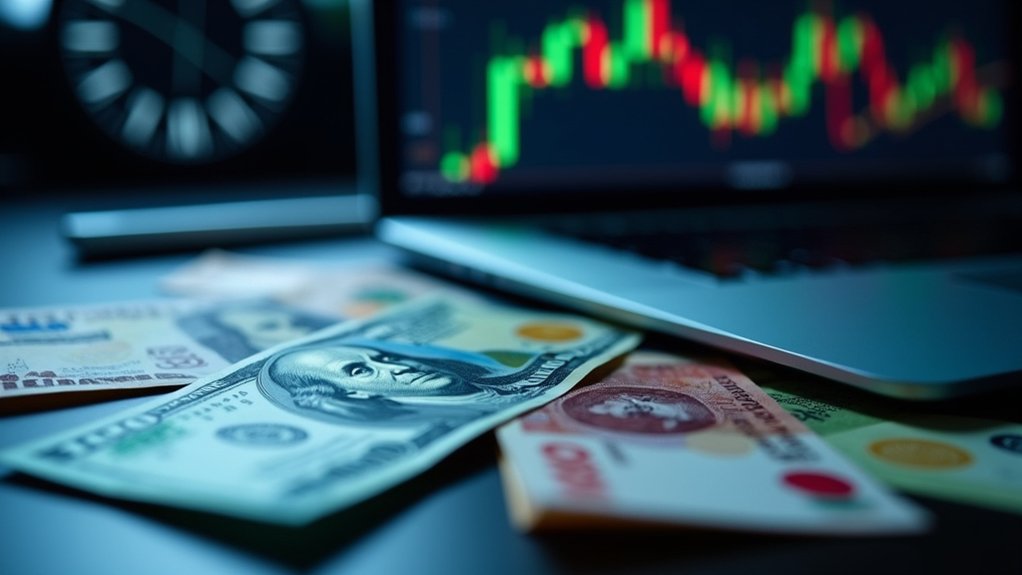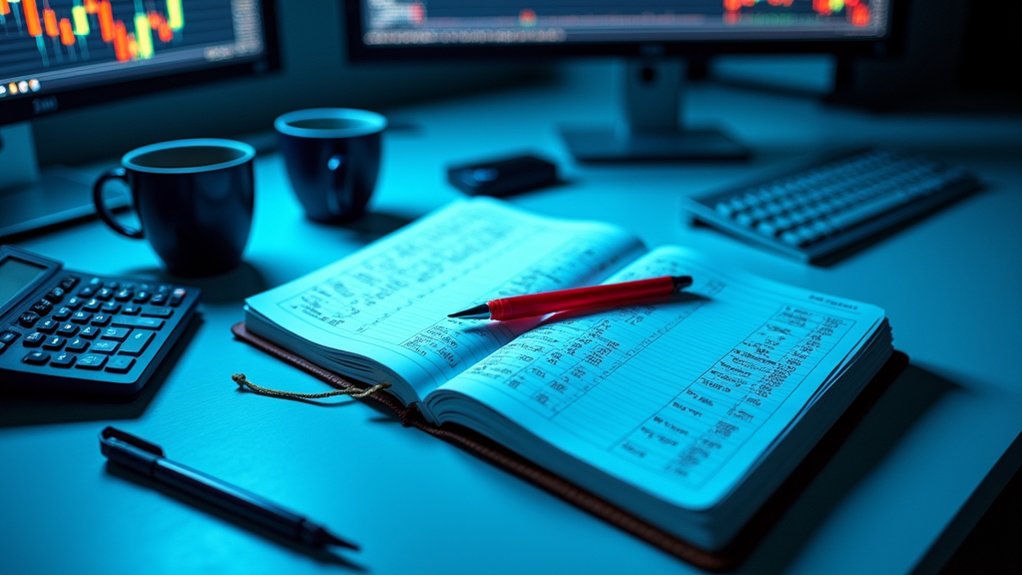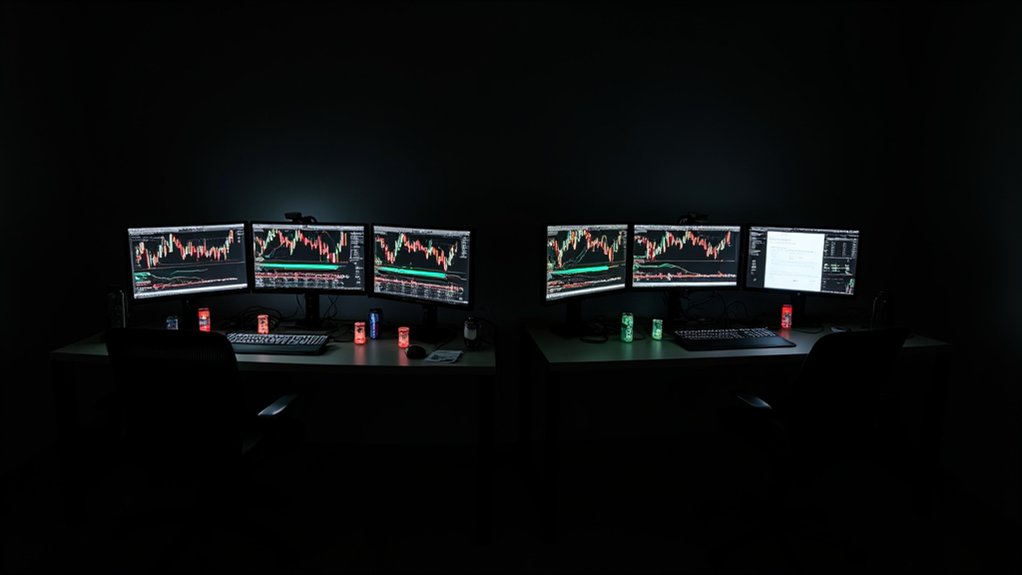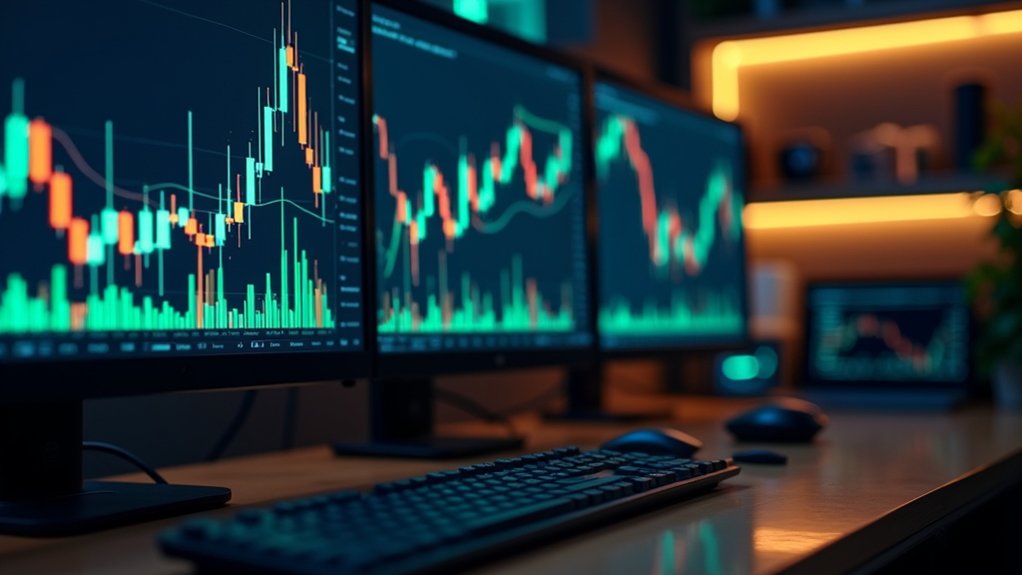Traders should stop when losses hit predetermined thresholds, when emotional stress clouds judgment, or when markets turn erratic during major economic announcements and political upheaval. Exhaustion from staring at charts, overconfidence after winning streaks, and contradictory technical signals all scream “step away.” Holding positions during low-liquidity windows or overnight risks catastrophic gaps that bypass stop losses entirely. Overtrading racks up spreads and commissions faster than most realize. Ignoring these warnings typically ends one way—blowing up the account before admitting a break wasn't optional but necessary for survival and better setups ahead.

Most African traders learn the hard way that knowing when to walk away matters just as much as knowing when to enter a trade. Whether operating from Lagos, Nairobi, or Johannesburg, the temptation to stay glued to charts during unfavorable conditions destroys more accounts than bad entries ever will.
Market volatility turns savage during major economic announcements. Trading USD/ZAR or GBP/NGN when central banks drop interest rate decisions is basically asking for trouble. High volatility creates unpredictable swings that ignore technical setups entirely. Liquidity dries up during certain hours too, particularly when African markets operate but major Western sessions haven't opened yet. Wider spreads eat profits faster than traders realize, especially noticeable when dealing with exotic pairs involving the Kenyan shilling or Ghanaian cedi. Understanding session overlap periods helps identify when liquidity peaks and when trading conditions become suboptimal.
Price gaps appear frequently around session closures. Holding positions overnight exposes traders to movements that happen while they sleep, and brokers serving African clients aren't always quick to honor stop losses during these gaps. Session shifts between London close and Asian open create choppy, directionless price action that favors no one.
Technical indicators flash warning signs that many ignore. Breakaway gaps signal significant trend changes, yet traders keep fighting the momentum. Exhaustion gaps suggest a trend is gasping its last breath. Trading against established support and resistance levels rarely works out well, particularly on pairs like EUR/EGP or USD/ZMW where liquidity already presents challenges. When multiple indicators contradict each other, clarity vanishes. Trading through confusion guarantees losses.
Strategy discipline separates survivors from statistics. Predetermined loss thresholds exist for a reason. Exceeding them means stopping immediately, not hoping for reversals that may never come. Risk management falls apart when position sizes grow reckless. An unfavorable reward-to-risk ratio turns trading into gambling. Overtrading drains accounts through accumulated spreads and commissions, something African traders paying higher broker fees understand intimately. Understanding pip movements helps traders accurately calculate whether their actual losses justify continuing or require an immediate break. Time-of-day awareness improves momentum capture and trade probability, making session timing critical for avoiding unfavorable market conditions.
Psychological factors hit harder than technical failures. Emotional stress clouds judgment faster than anything else. Fatigue from watching charts during both African and London sessions creates mistakes. Overconfidence after winning streaks leads to oversized positions that wipe out weeks of gains in minutes. Loss aversion paralyzes decision-making, turning small losses into catastrophic ones. Impulsive decisions driven by fear or greed override carefully planned strategies and destroy consistency. Mental clarity disappears, trading quality collapses. Poor entry timing causes immediate drawdowns that create emotional stress even when market direction proves correct later.
The market doesn't care about persistence or determination. It rewards discipline and punishes stubbornness equally across continents. Political instability and elections dramatically increase currency volatility and create unpredictable price swings that make technical analysis nearly useless. Recognizing unfavorable conditions and stepping aside preserves capital for better opportunities. African traders face enough structural challenges already without adding voluntary ones through poor timing and emotional decision-making.
Common Questions
How Do Frequent Power Cuts in Nigeria Affect When I Should Stop Trading?
Frequent power cuts should trigger an immediate trading pause.
Nigeria's grid collapsed twelve times in 2024, and the average trader faces blackouts roughly 160 days a year—that's 40% downtime.
When outages hit more than three times monthly in a region, it's time to step back.
Unpredictable blackouts during live trades mean forced exits, blown stops, and avoidable losses.
If backup power and internet aren't rock-solid, suspend trading until stability returns.
Simple math: no power, no trading.
Can Trading Breaks Help Me Avoid Emotional Decisions During Naira Depreciation?
Yes, breaks absolutely help Nigerian traders dodge emotional landmines during Naira crashes. When the currency tanks, fear and greed spike hard—and impulsive trades follow. Stepping away interrupts that spiral. Studies show emotionally detached traders outperform reactive ones by wide margins.
Breaks let the adrenaline fade, restore clear thinking, and prevent revenge trading after losses. It's not rocket science: volatile markets mess with heads. Walking away for a few hours—or days—protects capital better than white-knuckling through chaos.
Should I Pause Trading During Ramadan or Other Religious Observances in Africa?
Many African traders pause during Ramadan.
Trading volumes drop, volatility shrinks, and liquidity dries up across markets in Egypt, Morocco, Nigeria, and beyond.
Reduced business hours mean worse execution and fewer opportunities.
Some take the break for spiritual focus—fasting and trading don't mix well.
Islamic principles discourage excessive speculation anyway.
Studies show session durations fall 16% during Ramadan.
Whether it's practical or religious, stepping back often makes sense.
The market will still be there afterward.
Do South African Brokers Penalize Accounts That Remain Inactive for Extended Periods?
Yes, most South African brokers hit dormant accounts with inactivity fees after 2–3 months of zero trading or deposits.
Standard charge? Around R200 ($10) monthly, deducted until the trader wakes up or the balance runs dry.
The FSCA requires local brokers to disclose these fees upfront, so there's no excuse for surprise charges.
Some international platforms serving South Africa do the same. Zero-balance accounts usually dodge the fee. A few brokers skip inactivity penalties entirely—worth shopping around.
How Long Should Kenyan Traders Take Breaks After Significant Shilling Volatility?
Kenyan traders typically pause 48–72 hours after major KES swings—long enough for CBK signals and spreads to normalize.
Position traders often wait a full week following extreme moves like 2023's 15% slide.
Scalpers jump back faster, sometimes within 24–36 hours, though that's risky.
The break isn't arbitrary—it's about letting volatility settle, cognitive fatigue fade, and macro data clarify.
Banks recommend staged re-entry with smaller sizes until conditions stabilize.
